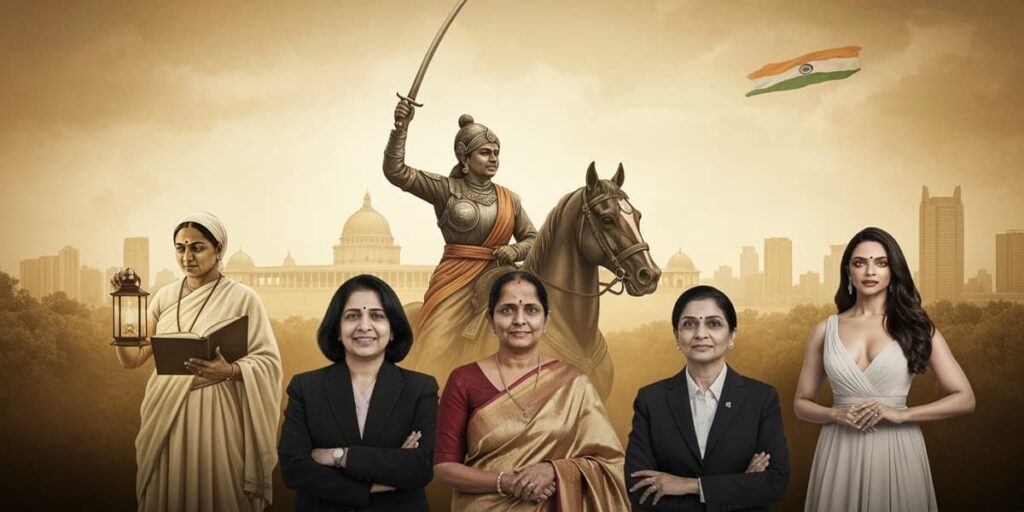The story of women empowerment in India is deeply rooted in the nation’s rich history and social reforms. From the pioneering voices like Savitribai Phule and Rani Lakshmibai in the 19th century to the legal and constitutional rights enshrined after independence, women’s fight for equality has been long and multifaceted. Early social reform movements challenged regressive customs, while independence-era leaders emphasized women’s education and participation in the freedom struggle.
Post-independence, constitutional guarantees provided the framework to uplift women, but the journey continued—marked by gradual progress, setbacks, and renewed activism. Today’s women empowerment movement builds on this legacy, combining traditional values with modern aspirations to shape an inclusive society. Understanding this historical arc enriches our appreciation of where India stands now, and where it is headed.
The Evolution of Women’s Status in India
India’s journey toward women empowerment is a powerful narrative of resilience, progress, and transformation. Over the past few decades, women across India have risen through the ranks in education, corporate leadership, politics, and social activism. Where once patriarchal norms largely dictated women’s roles, today’s India showcases a growing movement toward gender equality, fueled by changing societal attitudes, legislative reforms, and the relentless efforts of women themselves. Education access has broadened, and women’s participation in the workforce is climbing steadily, signaling a shift not only in individual lives but in the socio-economic fabric of the country.
Breaking Barriers: Success Stories Across Sectors
From boardrooms to sports arenas, Indian women are redefining success and challenging stereotypes. Women leaders in business such as Kiran Mazumdar-Shaw and Chanda Kochhar have made global impacts in their fields, while startups founded by women are gaining unprecedented visibility and funding. In technology, politics, and entertainment, women like Nirmala Sitharaman, Indra Nooyi, and Deepika Padukone serve as inspirations, symbolizing empowerment through determination and excellence.
The surge of women entrepreneurs and professionals today represents not just personal achievements but societal change, where women’s voices and contributions are increasingly valued and celebrated. This growth is supported by targeted government programs and private sector initiatives that encourage female leadership and economic participation.
Government and Social Initiatives Driving Change
The Indian government has played a crucial role in advancing women empowerment in India through policy and legislative reforms. Schemes like Beti Bachao Beti Padhao focus on female education and survival, while laws against domestic violence and workplace harassment aim to create safer environments for women. Financial inclusion initiatives, such as providing microloans and supporting women-led enterprises, empower women economically and socially.
Social organizations and NGOs also augment these efforts by advocating for health, education, and rights, especially in rural and underserved areas. Partnerships between the public and private sectors further strengthen these programs, paving a path toward greater equality and opportunity.
Challenges That Persist and How They Are Being Addressed
Despite remarkable progress, challenges remain. Gender disparities in rural areas, persistent societal biases, and obstacles in accessing quality education and healthcare continue to affect millions of women. The digital divide and lack of representation in certain professions highlight ongoing hurdles.
However, innovative solutions using technology, community mobilization, and education reform are creating new avenues for change. Grassroots initiatives promote awareness and legal literacy, empowering women to claim their rights and improve their status. Through constant dialogue and reform, India strives to close the gender gap and foster inclusion.
Shifting Perspectives: A New Vision for Women’s Empowerment in India
Looking beyond traditional narratives, women empowerment today is increasingly seen as a comprehensive social and economic movement for all genders. It invites us to rethink power structures, challenge entrenched norms and celebrate diversity in roles and identities.
The new perspective encourages us to view empowerment as multidimensional—embracing education, entrepreneurship, mental health, and safety. It’s about creating spaces where women can lead authentically, contribute fully, and inspire generations to come.
Embracing Empowerment as a Collective Journey
Women empowerment in India is no longer just a goal—it’s a vibrant movement that influences all facets of our lives, reshaping culture, economy, and politics. As members of the global Indian community, particularly those of us in the diaspora, this progress invites us to reflect on empowerment not only in the context of India’s past but as an ongoing collective journey.
Empowerment thrives when we, as a community, celebrate wins, acknowledge challenges, and work inclusively toward equal opportunities. It encourages us to support women in all roles—leaders, caregivers, innovators—and to dismantle barriers that hinder progress.
At Indian Panorama, we believe in amplifying stories that inspire, inform, and connect. We strive to provide a platform that honors the journeys of empowered women while educating and motivating everyone who reads us. Our commitment is to nurture a narrative where empowerment is a shared responsibility and a shared victory.
Together, let us embrace and champion the spirit of women empowerment—not only as observers but as active contributors to a world where every woman’s potential is realized and celebrated.
People Also Ask
Q1: What is women empowerment in India?
A1: Women empowerment in India refers to the process of increasing women’s access to education, employment, legal rights, and social status to achieve equality with men.
Q2: How has the status of women changed in recent years in India?
A: Increased literacy, workforce participation, political representation, and legal protections have significantly improved women’s opportunities and rights.
Q3: What are some government initiatives that support women empowerment in India?
A: Initiatives like Beti Bachao Beti Padhao, Mahila E-Haat, and schemes against domestic violence are key examples.
Q4: What challenges do Indian women still face today?
A: Challenges include gender discrimination, access to quality education, health care disparities, and societal biases particularly in rural areas.
Q5: How can society contribute to women empowerment?
A: By promoting gender equality education, creating safe and inclusive workplaces, supporting women entrepreneurs, and challenging stereotypes.
